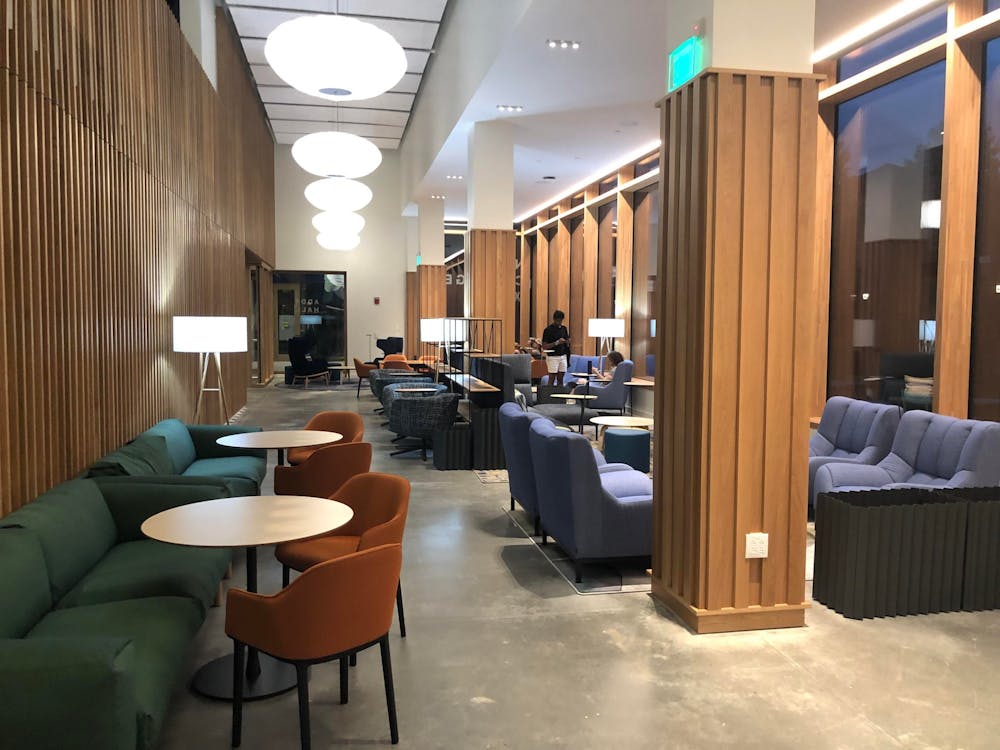Starting this academic year and awaiting final approval, residential college advisers will be considered to be students with “special responsibilities” in regard to alleged instances of sexual misconduct, under proposed changes to “Rights, Rules, Responsibilities.”
The proposed changes were approved by the faculty on Sept. 15 but await the approval of the Council of the Princeton University Community on Sept. 29.
“University community members who are not designatedConfidential Resources may be required to notify the Title IX Coordinator or the Department ofPublic Safety of suspected violations,” the proposed changes read. “Some students with special responsibilities, including Residential College Advisers, must promptly report alleged violations of this policy to their Directors of Student Life, who will then consult with the Title IX Coordinator.”
The Undergraduate Student Government expressed concern in a resolution on Sept. 21 about the “possible implications” of requiring RCAs to report to their director of student life an instance of sexual misconduct reported in confidence by someone other than the RCA’s direct advisees. However, RCAs and other mandated reporters, such as faculty and staff, are not required to report instances in which they themselves were the victims of sexual misconduct.
The three current and three former RCAs contacted for this story declined to comment, citing a policy that forbids them from speaking to the media.
Discussions between the University and the federal government determined that RCAs were “campus security authorities,” according to University spokesperson Martin Mbugua. This means that they are obligated to report instances of misconduct of which they are aware.
“Campus security authority” refers to a campus police or security department, security officers not part of a security department, individuals identified by policy as handling the reporting of crimes or “an official … [with] significant responsibility for student and campus activities, including, but not limited to, student housing, student discipline and campus judicial proceedings,” according to the Department of Education. RCAs are compensated by the University.

RCAs were informed of their reporting responsibilities in their training this year, Michele Minter, vice provost for institutional equity and diversity, said at a USG town hall meeting on Sunday.
Minter deferred comment to Mbugua for this story.
The USG resolution says that the senate acknowledges that the changes were “mandated.” It adds that the senate urges the University to promote Sexual Harassment/Assault Advising, Resources & Education as the primary resource for victims of sexual misconduct and people who know of cases of it.
SHARE staff members are confidential resources, meaning they are not obligated to report alleged instances of sexual misconduct. Thus, members of the University community can consider their options with SHARE staff without triggering a mandatory investigation.

SHARE peers, however, must report alleged instances of sexual misconduct to SHARE Director Jacqueline Deitch-Stackhouse, U-Councilor and SHARE peer Mallory Banks ’16 said at the town hall on Sunday.
RCAs should make sure to disclose their new reporting requirements accurately and reliably, Deitch-Stackhouse said.
“What’s in the best interest of victims is to make informed decisions,” she explained. Victims can choose to either disclose information to an RCA or consider a referral to a confidential resource, she added.
Tufts University senior and student activist John Kellysaid that the issue of making RCAs campus security authorities was complicated.In April, the Office for Civil Rights found Tufts to beout of compliancewith Title IX.
“On the one hand, resident assistants are employees of the University, so it makes sense for them to be mandated reporters,” Kelly said. “It’s particularly tricky when you start talking about students living on campus who happen to have a job but also are not doing that job 24/7 … That’s not the purpose of mandated reporting. I don’t think that’s the spirit of the law.”
Kelly said student engagement was very significant in changing the culture and processes surrounding sexual misconduct at Tufts.
“It’s the only reason anything has changed,” Kelly said. “Nothing’s going to happen until students got angry and started voicing that anger. It’s been instrumental in getting the attention of [the Office for Civil Rights]. It’s been instrumental in getting really positive policy changes. It’s been instrumental in making this something the campus has to talk about.”
The Office for Civil Rights had held the University in noncompliance in July, which prompted the faculty to vote on the proposed changes last week. At the faculty meeting, Dean of the Faculty Deborah Prentice said that the University was under time pressure to comply with explicit legal demands made over the summerby the Office for Civil Rights, according to an article in The Daily Princetonian.







